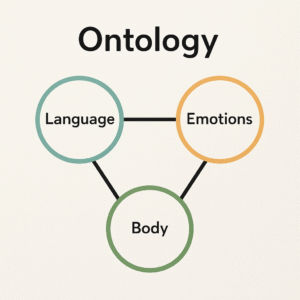
How do you handle difficult conversations?
A lot of our time and energy is wasted on conflicts, resolving or avoiding them.
If you’re in a mood to resolve then the most important part of it would be to ‘handle difficult conversations’
Whether it’s your personal relationships or professional ones, conflicts are often resolved by having an open, honest, and clear communication
However, when there are high-voltage emotions involved, the most simple process can become daunting.
Having a conversation though is vital to manage conflicts in any relationship. And Not having it would be a missed opportunity.
So how can you muster the courage to have difficult conversations?
Here is a framework you can use that can work with your family members as well as with your team members at work.
To make it easy for you, let’s put them into three phases or you say the 3Ps – Prepare – Pursue – Prevent
Let’s look at each of them in detail
1. Prepare
Preparation is what you do before having the actual conversation.
While it is important that you get ready to explain your perspective, it is equally important to alert the other person or party so they can prepare as well. Not doing that can create an imbalance and that’s not a good way to resolve things.
Preparations can help us assimilate facts that support our perspective. It can also help us take care of our emotions especially when we know that the conversation can trigger us.
“Good luck is when opportunity meets preparation, while bad luck is when lack of preparation meets reality.” (Eliyahu Goldratt)
So how can you prepare well for having a difficult conversation?
Here are a few tips for you
1. Prepare to Listen
Remember you’re having this conversation because you want to resolve the conflict. Therefore you must prepare yourself to listen to their perspective. An attitude to understanding their point of view can help you make rational decision
2. Be aware of your Emotions
Look back on your relationship and ask yourself what has triggered your emotions previously.
It’s possible that difficult conversations you’re about to have, especially with people who you are emotionally connected with, can trigger unpleasant feelings. By being aware of them you can control this surge
3. Practice Pausing
No matter how ready you are, sometimes we are unable to control our emotions. Pausing or practicing to pause at the time of an emotional surge helps us calm the anxiety and think more rationally
4. Define your Purpose
What is your purpose for having the conversation? What do you hope to achieve? What would you want the ideal outcome to be? It is better to answer all these questions clearly for yourself so you can remind yourself and support when needed.
5. Plan but don’t Script
The whole idea of the preparation phase is for us to strategise on resolving conflicts, right? So one way to make it easy is to plan on what your responses could be. Although this would be on a high level as you can never really assume the direction your conversation would go
However you can plan what /how to start, maybe setting the context and also showing your vulnerability.
For example, saying something like “This is difficult for me to say this but I value our relationship more ……” etc can be a good start This not only sets the tone but others will respect you more for your authenticity.
2. Pursue
Pursuing is where you take action, which is having the actual conversation. And all that prep you did before can help you here.
Couple of things for you to remember while you’re on it –
1. Be clear & to the point
Don’t dwell too long in setting context etc., come to the point quickly. Also ensure that you’re using clear, simple and specific points with as many examples as possible so what you’re presenting is factual
2. Watch your language and tone
Even though you have a plan in place, the actual words and the tone you use during the conversation matter. It’s not difficult for the other person to understand your intention because it shows.
3. Offer solutions
While you’re presenting your perspective with facts etc, ensure that you also offer solutions that can change the situation. That’s the intention anyway, right? To change and to move forward.
4. Use silence
This becomes important especially when the conversation gets emotionally heavy. Giving space to the other person, in the form of silence, to assimilate their thoughts is one way of showing empathy.
5. Ask Questions
As many as possible. As it indicates your curiosity in understanding others’ perspectives. It can also help you clarify details of the conversation and bring both of you to a common understanding.
6. Close on Commitment
Before finishing the conversation, ensure that both of you are committing yourself to the agreed solution. It’s even better to also put timelines and ways to measure the change.
How will you remember all these? You would if you were mindful of them.
Nothing is more precious than being in the present moment. Fully alive, fully aware. (Thich Nhat Hanh)
3. Prevent
Just because the conversation ended on a positive note (assuming it did) does not mean the conflict has ended. It is important to follow through on your commitment so that you can prevent it from happening again.
So how do you do that?
1. Follow up – Remember you committed at the end of the conversation? Now is the time to check in to see if the commitment is met.
2. Feedforward – is providing alternate solutions if the commitment has not been met, or if there is any feedback on action. Remember feed-forward is having a focus on the future.
3. Reflect – It is equally important for you to evaluate your performance so that strength can be tapped into every time you have a difficult conversation.
Here’s an infographic that summarises all three phrases

It is said that when we avoid difficult conversations we trade short-term discomfort for long-term dysfunction. Having those is therefore is vital for sustaining relationships. A better way to approach any difficult conversation or resolve any conflict is to approach it systematically with a definitive strategy.
Good luck!

Aparna is a behavioural coach with a passion to support people who want to help themselves. She is an avid YouTube and publishes weekly videos. For more information and to reach out to her click here




